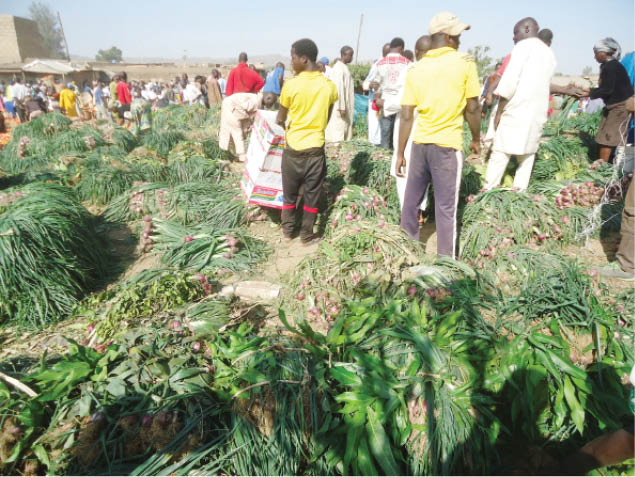Nigeria-Brazil agribusiness deal is a game-changer
I am writing to express my enthusiasm for the recent agribusiness deal between Nigeria and Brazil, which is expected to attract $4.3 billion in investments. This deal has the potential to transform Nigeria’s agricultural sector, boost the country’s economy, and improve the lives of millions of Nigerians. The partnership with Brazil, a renowned agricultural powerhouse, […]

Onions farmers in search of market for their produce
I am writing to express my enthusiasm for the recent agribusiness deal between Nigeria and Brazil, which is expected to attract $4.3 billion in investments. This deal has the potential to transform Nigeria’s agricultural sector, boost the country’s economy, and improve the lives of millions of Nigerians.
The partnership with Brazil, a renowned agricultural powerhouse, will undoubtedly bring in much-needed expertise, technology, and funding to Nigeria’s agricultural sector. Brazil’s success in agriculture is well-documented, and its experience in large-scale agricultural production, processing, and exportation will be invaluable in helping Nigeria to develop its own agricultural sector.
This deal is expected to focus on several key areas, including the production of soybeans, maize, and cassava, as well as the development of irrigation systems and other critical infrastructure. The partnership will also involve the establishment of agricultural training centres and the transfer of technology to Nigerian farmers.
The benefits of this deal are numerous. Firstly, it will help to enhance food security in Nigeria by increasing the production of staple crops such as maize, soybeans, and cassava. This, in turn, will reduce the country’s reliance on food imports and save billions of dollars in foreign exchange.
- Defeating the Lakurawa in a climate of mutual distrust
- Phoenix University celebrates 1st chancellor, matriculates student
Secondly, the deal will create employment opportunities for millions of Nigerians, particularly the youth. Agriculture is a labour-intensive sector, and the development of large-scale agricultural production will require a significant workforce. This will help to reduce unemployment and poverty in rural areas.
Thirdly, the deal will help to boost Nigeria’s economy by increasing the country’s agricultural exports. Brazil is a major player in the global agricultural market, and its expertise and technology will help Nigeria to increase its agricultural exports and earn much-needed foreign exchange.
I urge the government to ensure that the benefits of this deal are equitably distributed among all stakeholders, including smallholder farmers. The government must also ensure that the environmental impact of large-scale agricultural production is carefully managed to avoid degradation of the environment and loss of biodiversity.
The Nigeria-Brazil agribusiness deal is a game-changer for Nigeria’s economy. It has the potential to transform the country’s agricultural sector, enhance food security, create employment opportunities, and boost the economy. I commend the government for facilitating this partnership and look forward to seeing its positive impact on the country.
Ibrahim Bukar Tijjani, Department of Mass Communication, Borno State University, Maiduguri
